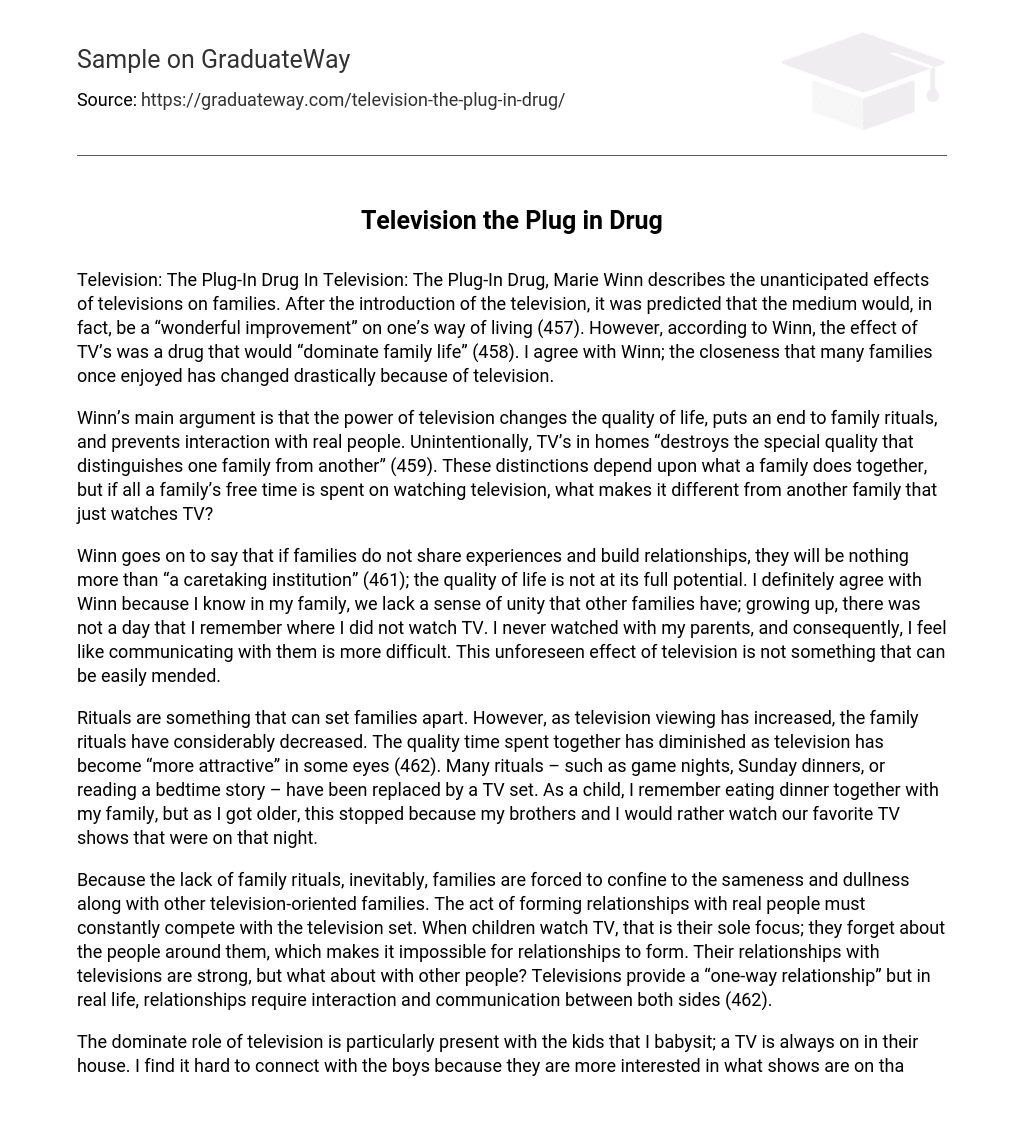Television: The Plug-In Drug In Television: The Plug-In Drug, Marie Winn describes the unanticipated effects of televisions on families. After the introduction of the television, it was predicted that the medium would, in fact, be a “wonderful improvement” on one’s way of living (457). However, according to Winn, the effect of TV’s was a drug that would “dominate family life” (458). I agree with Winn; the closeness that many families once enjoyed has changed drastically because of television.
Winn’s main argument is that the power of television changes the quality of life, puts an end to family rituals, and prevents interaction with real people. Unintentionally, TV’s in homes “destroys the special quality that distinguishes one family from another” (459). These distinctions depend upon what a family does together, but if all a family’s free time is spent on watching television, what makes it different from another family that just watches TV?
Winn goes on to say that if families do not share experiences and build relationships, they will be nothing more than “a caretaking institution” (461); the quality of life is not at its full potential. I definitely agree with Winn because I know in my family, we lack a sense of unity that other families have; growing up, there was not a day that I remember where I did not watch TV. I never watched with my parents, and consequently, I feel like communicating with them is more difficult. This unforeseen effect of television is not something that can be easily mended.
Rituals are something that can set families apart. However, as television viewing has increased, the family rituals have considerably decreased. The quality time spent together has diminished as television has become “more attractive” in some eyes (462). Many rituals – such as game nights, Sunday dinners, or reading a bedtime story – have been replaced by a TV set. As a child, I remember eating dinner together with my family, but as I got older, this stopped because my brothers and I would rather watch our favorite TV shows that were on that night.
Because the lack of family rituals, inevitably, families are forced to confine to the sameness and dullness along with other television-oriented families. The act of forming relationships with real people must constantly compete with the television set. When children watch TV, that is their sole focus; they forget about the people around them, which makes it impossible for relationships to form. Their relationships with televisions are strong, but what about with other people? Televisions provide a “one-way relationship” but in real life, relationships require interaction and communication between both sides (462).
The dominate role of television is particularly present with the kids that I babysit; a TV is always on in their house. I find it hard to connect with the boys because they are more interested in what shows are on than in having a conversation with me. With the continuous presence of television, it is difficult to build real relationships, much less real families. Throughout Television: The Plug-In Drug, Marie Winn emphasizes the negative effects television has on people and their families.
She believes it decreases the quality of life, diminishes family rituals, and inhibits interaction with real people – in which I agree. Her argument is powerful and consistent through the entire excerpt. After reading the excerpt, because of Winn’s compelling argument, I apply a pessimistic connotation to televisions. I see the “power of television to dominate family life” that Winn described (458). Something intended to be used as a catalyst to bring family together, is now the very thing that is driving them apart.





